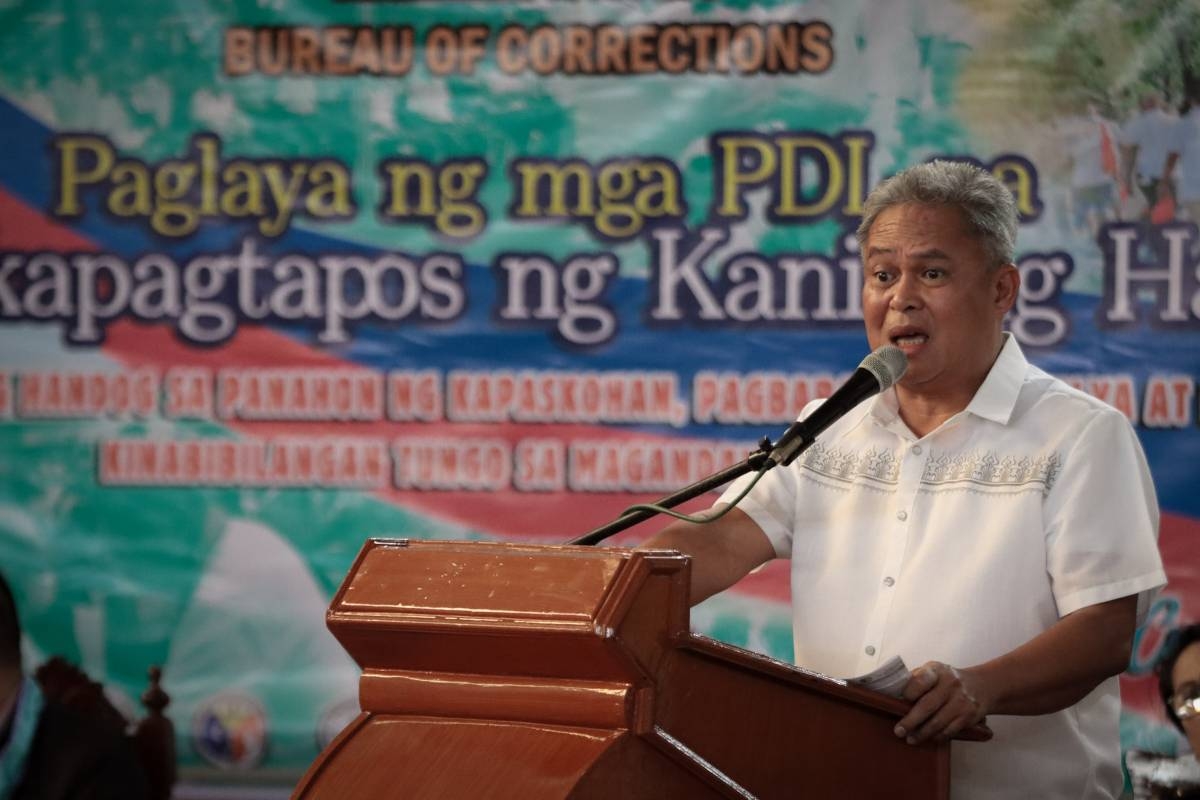In a significant move to address the issue of overcrowded prisons, the Philippine government released more than 600 persons deprived of liberty (PDLs) on Tuesday. The Bureau of Corrections (BuCor) announced that this release is part of a broader effort to decongest jail facilities that have been operating beyond their capacity.
According to BuCor Director General Gregorio Catapang Jr., out of the 632 PDLs released, 86 were acquitted, 503 had completed their maximum sentences, 19 were granted probation, and 24 were granted parole. These numbers contribute to a total of 9,228 PDLs being released since July 2022, with 3,372 freed in the latter half of 2022 and 5,856 in 2023.
Catapang further explained that the release of more PDLs is anticipated once the Supreme Court resolves the issue concerning the Good Conduct Time Allowance (GCTA) for heinous crime offenders. He mentioned that if this issue is resolved, an additional 5,000 to 10,000 PDLs may be released.
The Bureau of Corrections had previously sought the guidance of the high court in applying the GCTA stipulated under Republic Act (RA) 10592, enacted on May 29, 2013. By clarifying the guidelines, the government aims to ensure a fair and just implementation of the law.
Justice Secretary Jesus Crispin Remulla commended the recent release of PDLs, highlighting its significance in addressing prison congestion and improving the treatment of PDLs in accordance with the United Nations Standard Minimum Rules for the Treatment of Prisoners. The Department of Justice (DoJ) has taken comprehensive measures to streamline the release process and enhance prison management.
To provide better legal support, the DoJ has strengthened the services of the Public Attorney’s Office. The digitization of over 48,000 records through the Single Carpeta System has also improved efficiency in record-keeping. Additionally, the parole and clemency processes have been simplified, making it easier for eligible PDLs to be considered for early release.
Furthermore, the DoJ has adjusted bail considerations for indigent litigants and fostered efficient collaboration among different agencies involved in the justice system. These reforms aim to not only improve systems but also recognize the potential in every individual and their contribution to society.
During a program held at the New Bilibid Prison in Muntinlupa, Secretary Remulla emphasized the successful reintegration of PDLs into communities, underscoring the government’s commitment to a justice system that prioritizes rehabilitation and collective progress. He stressed that while upholding the rights and well-being of PDLs, public safety and the rule of law remain paramount.
The ongoing efforts by the Department of Justice are directed towards creating a correctional system that is not only just but also focused on rehabilitation and positive societal impact. By adopting these measures, the Philippine government aims to address prison congestion, enhance the treatment of PDLs, and promote a fair and effective justice system.
In conclusion, the recent release of over 600 PDLs in the Philippines marks a significant step towards decongesting overcrowded prisons. The government’s commitment to improving prison management, streamlining the release process, and fostering rehabilitation demonstrates their dedication to upholding the rights and well-being of PDLs while ensuring public safety. These efforts aim to create a correctional system that not only serves justice but also facilitates the positive reintegration of individuals into society.







